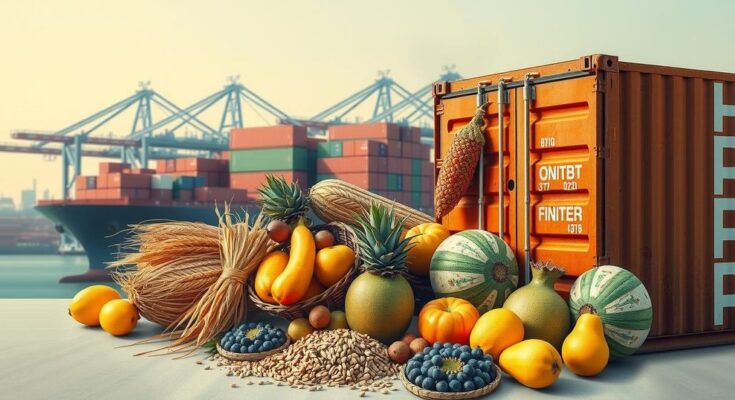A new proposal for a US tariff on ships built in China, reaching as high as $1.5 million per docking, has left American farmers feeling uneasy. The agricultural sector, which depends on reasonably priced shipping to stay competitive in exports, is worried that these heightened costs could stifle profit margins and inflate prices of essential inputs such as fertiliser, all while handing trade advantages over to foreign competitors. This intended measure, aimed at countering China’s maritime influence, risks having adverse effects by disrupting trade flows and negatively impacting local producers.
The central question emerges: how do tariffs and trade barriers influence domestic producers and global market effectiveness? The proposed tariff aims to diminish reliance on Chinese shipbuilding; however, the burden of these costs is likely to fall on US farmers. Increased transport expenses serve as significant transaction costs in international trade, ultimately impacting pricing and access to markets.
Further, this plan could skew trade dynamics between the US and its agricultural partners. Elevated input costs, particularly for fertiliser, can significantly hinder the competitive edge of American farmers, making it challenging for them to maintain their international positions.
Furthermore, should these tariffs be implemented, American agricultural products could see a surge in prices, squeezing profits and diminishing competitiveness in global markets. The stability of trade policies is critical for grain exporters and freight operators, allowing them to plan and make informed decisions amidst uncertainty.
The concept of comparative advantage highlights how nations produce goods more efficiently. China’s strength in shipbuilding bolsters its global shipping dominance, and limiting access to these vessels could disrupt trade efficiency and raise costs across the board. This scenario encapsulates the ongoing clash between economic nationalism and the necessity for global market efficiency.
A proposed US tariff on Chinese ships threatens the agricultural sector, with farmers fearing increased costs that could harm profitability and competitiveness. While intended to curb China’s maritime dominance, the measure may disrupt trade and inflate input prices, impacting US exports. The need for stable trade policies is crucial to safeguard market efficiency and ensure predictability for stakeholders.
In conclusion, the proposed tariffs on Chinese-built ships are poised to create significant ripples in the agricultural sector. Farmers fear that increased shipping costs will undermine their profitability and competitiveness. The implications stretch beyond just economic concerns, stirring a dialogue on the delicate balance between national interests and global trade efficiency. Clearly, stability and predictability in trade policies remain paramount for all market participants involved.
Original Source: www.ft.com



